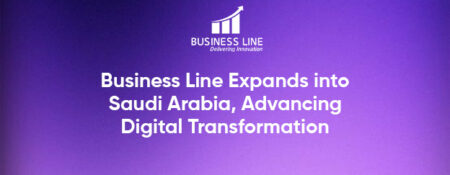
Ask insurance companies in Saudi Arabia. They’ll tell you that private-sector employers must provide health insurance to their employees. If you want further confirmation, visit the website of the Insurance Authority (IA), the insurance regulator of the Kingdom of Saudi Arabia.
What does compulsory health insurance mean for employers in KSA?
The government of Saudi Arabia requires private-sector employers to provide medical insurance to all their employees and these employees’ dependents. Dependents include:
There is no limit to the number of dependents that can be included in an employee’s medical insurance coverage. The Insurance Authority also makes it clear that the health insurance of employees and their families is the employers’ sole responsibility. This means:
Note that the mandatory health insurance benefit for private-sector employees applies to both male and female employees. There’s just a bit of a distinction in the coverage of the husband or the wife.
If the employee is male, their wife or wives (multiple spouses are allowed) have coverage, even if the wife or wives are employed and have their employer-provided health insurance. Working wives, therefore, can have dual coverage, although their employer-provided medical insurance is their primary health insurance policy.
If the employee is female, their medical insurance benefit extends to the husband only if said husband is not working or is employed in the public sector.
How about children? If both the husband and the wife are employed in the private sector—both have mandatory medical insurance coverage from their respective employers—their dependent children are eligible for coverage under the husband’s employer-provided health insurance plan.
The private-sector mandatory health insurance coverage is a benefit that applies to both Saudi and non-Saudi employees. An expatriate working for a private company, therefore, is qualified for employer-provided medical insurance. So are their children.
How about Saudi employees? Citizens (like public-sector employees) already have free healthcare. Are their private-sector employers still required to provide them with medical insurance? Yes, they are. Employers must offer health insurance to Saudi nationals and their families.
Medical insurance coverage ends for an employee when any of the following things happen:
Medical insurance coverage ends for an employee’s dependents:
Employers typically use corporate group health insurance in the KSA to provide employees with comprehensive medical coverage at a reasonable price. Group plans offer great value for money because the bigger the group, the deeper the discount on premiums.
To build a group insurance plan that works for you and your employees, consider these tips and guidelines:
You can customize your employee health insurance package. Insurance companies can provide basic, intermediate, or advanced coverage depending on your preferences.
Make sure your health insurance plan covers the basics. These are:
You can enhance your company’s health insurance plan with add-ons, such as:
Take stock of your employee demographics to create a plan that your employees will find useful (and thus appreciate and value). Younger professionals likely have different priorities than older workers or family-focused employees.
Not all insurance companies are the same, so look for a partner that can offer flexibility and fast claims processing as well as a strong reputation for customer support. You want a company with a proven track record of serving the needs of corporations and providing stellar experiences to employees and their families.
The insurance company should have an extensive network of hospitals and medical centers, a 24/7 hotline for inquiries, direct settlement of preplanned treatments, and direct settlement of payment claims. It should also have an administrative portal or dashboard where you can log in to conveniently add and remove employees and dependents from your group coverage.
Enhance your health insurance’s perceived value by making sure employees understand the plan inclusions and know how to take advantage of their benefits. YOu can host Q&A sessions, distribute insurance booklets, give employees personalized insurance cards, and bring in your provider at least twice a year to explain the insurance policy.
As your company grows or shifts focus, revisit your employee health insurance package. Monitor market trends and evolving needs, whether that’s enhanced mental health benefits or new options for job-specific risks.
Health insurance is required by law in the KSA.
As an employer, provide at least the basic inclusions, but it’s better if you can provide enhanced health insurance benefits. Make sure to work with the right partner, too, to give your employees reliable coverage.




This section of articles cover a diverse spectrum of informative and engaging content that goes beyond borders of UAE and covers the rest of the World. From insightful explorations of scientific breakthroughs and technological innovations to captivating features on cultural phenomena and lifestyle trends, these articles provide our readers with a wealth of knowledge and inspiration. Whether uncovering the latest advancements in health and wellness, sharing tips for personal development, or spotlighting intriguing stories from around the world, this category serves as a trusted source of news and information.